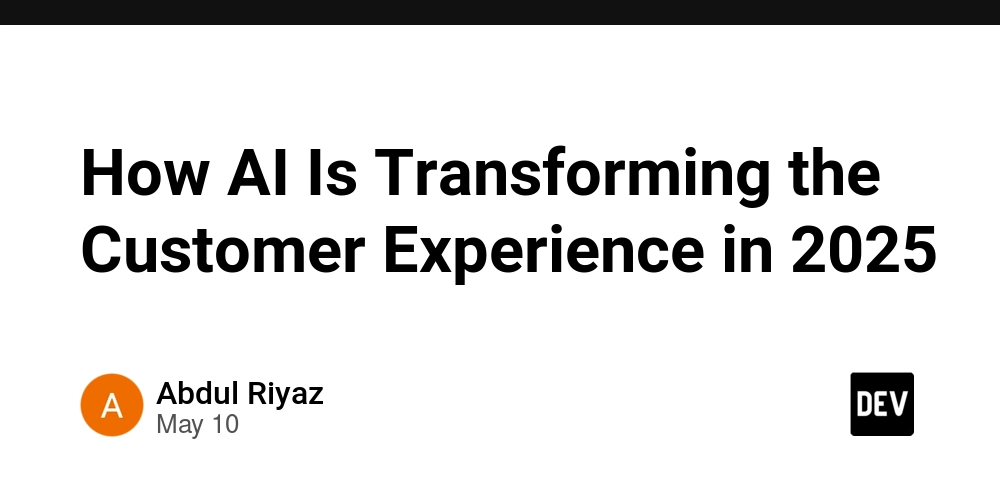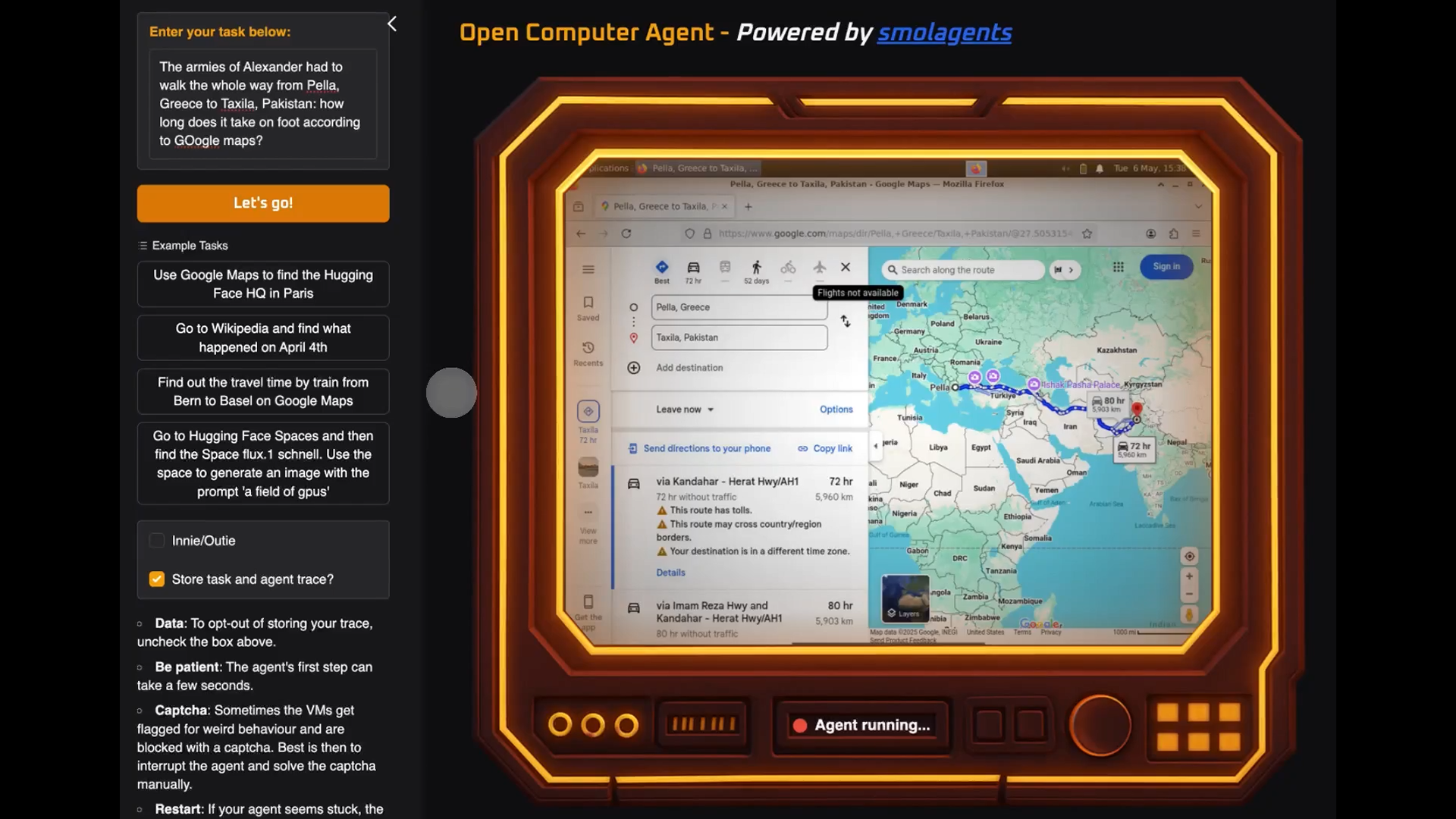How AI Is Transforming the Customer Experience in 2025
The way businesses interact with customers is changing rapidly—and Artificial Intelligence (AI) is leading the transformation. In 2025, companies are no longer relying solely on human agents or static systems to serve users. Instead, they are integrating intelligent AI technologies to deliver faster, more accurate, and highly personalized customer experiences. Let’s explore how AI is revolutionizing customer engagement across multiple industries. Personalized Interactions at Scale One of AI’s most powerful capabilities is its ability to analyze customer data and deliver tailored experiences. From e-commerce platforms recommending the right product, to streaming services curating perfect watchlists, personalization powered by machine learning has become the norm. This shift isn’t limited to large corporations. Small and medium-sized businesses are also adopting AI tools to automate segmentation, track behavior, and respond with custom messages or product suggestions. These improvements not only boost customer satisfaction but also increase conversion rates. AI-Powered Chatbots and Virtual Assistants Today’s AI chatbots are more than just programmed responders. They can understand natural language, interpret emotions, and resolve queries with minimal human intervention. Whether it’s tracking an order, solving a technical issue, or booking a service, AI assistants are reducing wait times and increasing availability. For businesses operating 24/7 or serving global customers, AI support systems ensure continuity without the cost of maintaining large human teams. Platforms like Amr Tech Insights regularly highlight emerging AI tools and strategies that businesses can implement to enhance their customer service frameworks. Real-Time Insights and Predictive Support AI tools can proactively detect customer frustrations before they escalate. For example, if a user struggles to navigate a checkout page, AI systems can trigger real-time assistance. If someone abandons their cart, a predictive engine can send timely follow-up messages or discount offers. By using AI-powered analytics, companies can also identify patterns in support tickets and update their processes accordingly, reducing future complaints. Multilingual and Inclusive Communication Language barriers have always been a challenge in global customer service. AI-based translation tools now allow companies to engage customers in their native languages without hiring multilingual staff. Moreover, voice recognition and sentiment analysis allow businesses to engage with users who may have accessibility needs, ensuring more inclusive support experiences. Faster, Smarter Feedback Loops Collecting and analyzing feedback is essential for improvement. AI helps automate the process of gathering reviews, interpreting customer sentiment, and identifying areas of concern. These insights are far more actionable than traditional surveys, helping companies iterate faster and more effectively. AI also assists in spotting fake reviews or spam feedback, improving the reliability of customer sentiment data. Looking Ahead As customer expectations grow, businesses need smarter ways to meet and exceed them. AI offers the speed, scalability, and intelligence required to deliver truly modern customer experiences. Companies that embrace this transformation are gaining a significant edge in trust, loyalty, and retention. To stay updated on how businesses are successfully implementing AI, platforms like Amr Tech Insights provide expert insights, tools, and resources. Conclusion AI is not just improving how businesses operate—it’s changing how customers feel about the brands they interact with. Whether it’s personalized content, real-time support, or predictive engagement, artificial intelligence is setting a new standard for customer satisfaction in 2025 and beyond.

The way businesses interact with customers is changing rapidly—and Artificial Intelligence (AI) is leading the transformation. In 2025, companies are no longer relying solely on human agents or static systems to serve users. Instead, they are integrating intelligent AI technologies to deliver faster, more accurate, and highly personalized customer experiences.
Let’s explore how AI is revolutionizing customer engagement across multiple industries.
Personalized Interactions at Scale
One of AI’s most powerful capabilities is its ability to analyze customer data and deliver tailored experiences. From e-commerce platforms recommending the right product, to streaming services curating perfect watchlists, personalization powered by machine learning has become the norm.
This shift isn’t limited to large corporations. Small and medium-sized businesses are also adopting AI tools to automate segmentation, track behavior, and respond with custom messages or product suggestions. These improvements not only boost customer satisfaction but also increase conversion rates.
AI-Powered Chatbots and Virtual Assistants
Today’s AI chatbots are more than just programmed responders. They can understand natural language, interpret emotions, and resolve queries with minimal human intervention. Whether it’s tracking an order, solving a technical issue, or booking a service, AI assistants are reducing wait times and increasing availability.
For businesses operating 24/7 or serving global customers, AI support systems ensure continuity without the cost of maintaining large human teams.
Platforms like Amr Tech Insights regularly highlight emerging AI tools and strategies that businesses can implement to enhance their customer service frameworks.
Real-Time Insights and Predictive Support
AI tools can proactively detect customer frustrations before they escalate. For example, if a user struggles to navigate a checkout page, AI systems can trigger real-time assistance. If someone abandons their cart, a predictive engine can send timely follow-up messages or discount offers.
By using AI-powered analytics, companies can also identify patterns in support tickets and update their processes accordingly, reducing future complaints.
Multilingual and Inclusive Communication
Language barriers have always been a challenge in global customer service. AI-based translation tools now allow companies to engage customers in their native languages without hiring multilingual staff.
Moreover, voice recognition and sentiment analysis allow businesses to engage with users who may have accessibility needs, ensuring more inclusive support experiences.
Faster, Smarter Feedback Loops
Collecting and analyzing feedback is essential for improvement. AI helps automate the process of gathering reviews, interpreting customer sentiment, and identifying areas of concern. These insights are far more actionable than traditional surveys, helping companies iterate faster and more effectively.
AI also assists in spotting fake reviews or spam feedback, improving the reliability of customer sentiment data.
Looking Ahead
As customer expectations grow, businesses need smarter ways to meet and exceed them. AI offers the speed, scalability, and intelligence required to deliver truly modern customer experiences.
Companies that embrace this transformation are gaining a significant edge in trust, loyalty, and retention. To stay updated on how businesses are successfully implementing AI, platforms like Amr Tech Insights provide expert insights, tools, and resources.
Conclusion
AI is not just improving how businesses operate—it’s changing how customers feel about the brands they interact with. Whether it’s personalized content, real-time support, or predictive engagement, artificial intelligence is setting a new standard for customer satisfaction in 2025 and beyond.










































































































































































![[The AI Show Episode 146]: Rise of “AI-First” Companies, AI Job Disruption, GPT-4o Update Gets Rolled Back, How Big Consulting Firms Use AI, and Meta AI App](https://www.marketingaiinstitute.com/hubfs/ep%20146%20cover.png)



























































































































![[FREE EBOOKS] Offensive Security Using Python, Learn Computer Forensics — 2nd edition & Four More Best Selling Titles](https://www.javacodegeeks.com/wp-content/uploads/2012/12/jcg-logo.jpg)



![Ditching a Microsoft Job to Enter Startup Purgatory with Lonewolf Engineer Sam Crombie [Podcast #171]](https://cdn.hashnode.com/res/hashnode/image/upload/v1746753508177/0cd57f66-fdb0-4972-b285-1443a7db39fc.png?#)





























































.jpg?width=1920&height=1920&fit=bounds&quality=70&format=jpg&auto=webp#)































































![T-Mobile discontinues a free number feature but a paid alternative exists [UPDATED]](https://m-cdn.phonearena.com/images/article/170235-two/T-Mobile-discontinues-a-free-number-feature-but-a-paid-alternative-exists-UPDATED.jpg?#)
![Apple's 11th Gen iPad Drops to New Low Price of $277.78 on Amazon [Updated]](https://images.macrumors.com/t/yQCVe42SNCzUyF04yj1XYLHG5FM=/2500x/article-new/2025/03/11th-gen-ipad-orange.jpeg)
![Beats Studio Buds + On Sale for $99.95 [Lowest Price Ever]](https://www.iclarified.com/images/news/96983/96983/96983-640.jpg)
































































































-xl.jpg)





























![New iPad 11 (A16) On Sale for Just $277.78! [Lowest Price Ever]](https://www.iclarified.com/images/news/97273/97273/97273-640.jpg)











































![[Exclusive] Infinix GT DynaVue: a Prototype that could change everything!](https://www.gizchina.com/wp-content/uploads/images/2025/05/Screen-Shot-2025-05-10-at-16.07.40-PM-copy.png)
























































